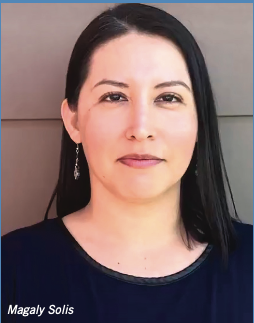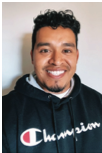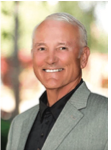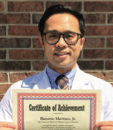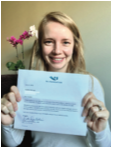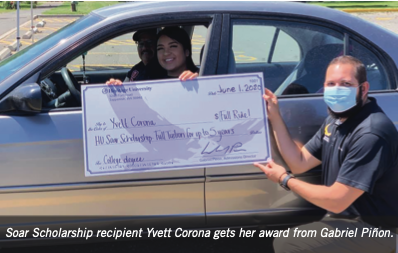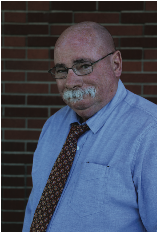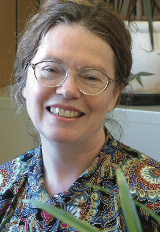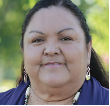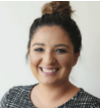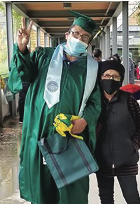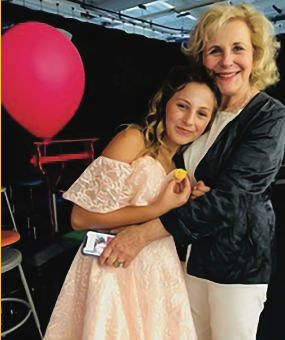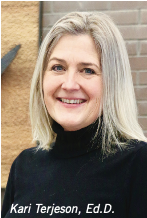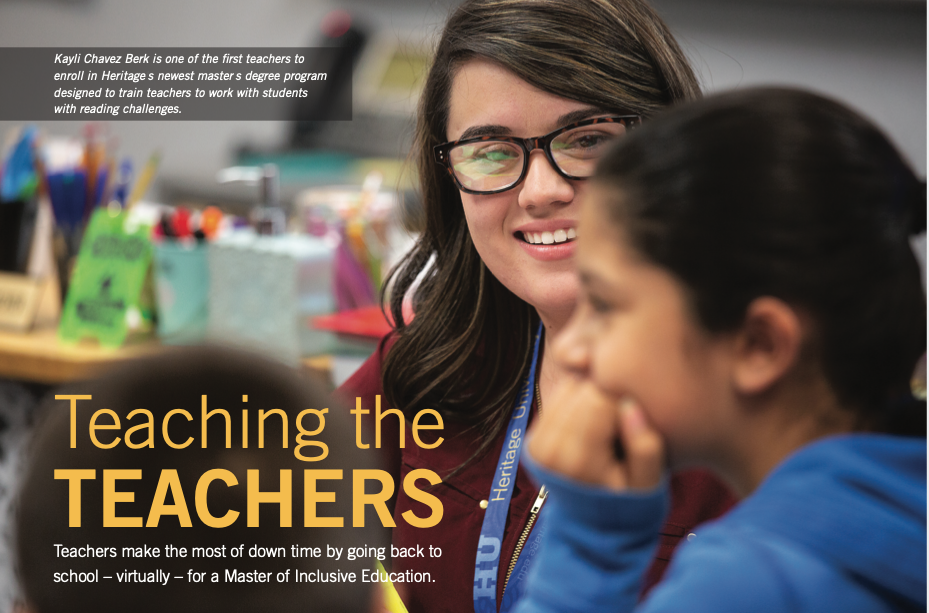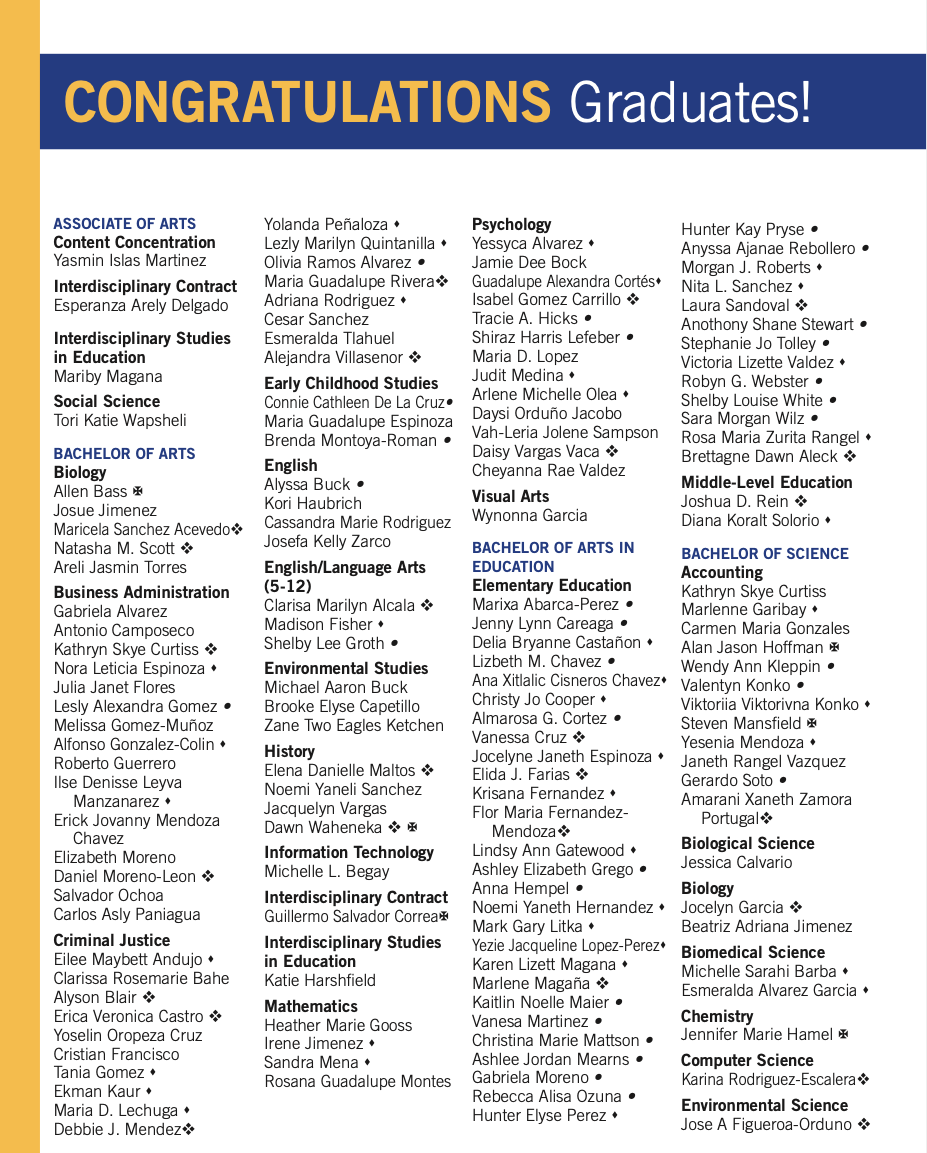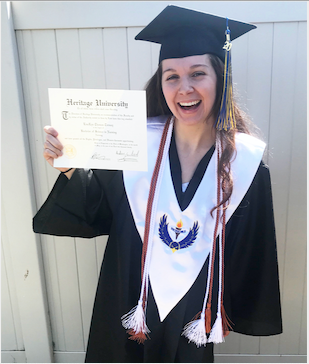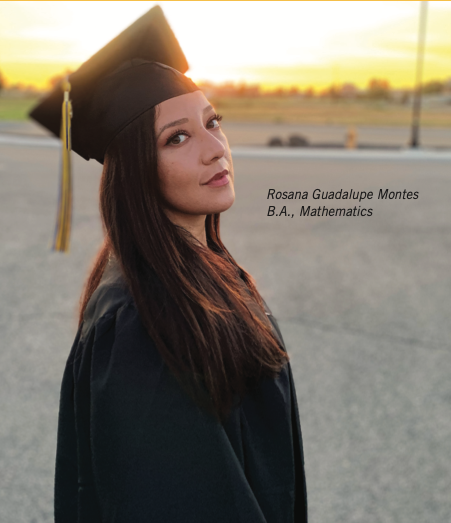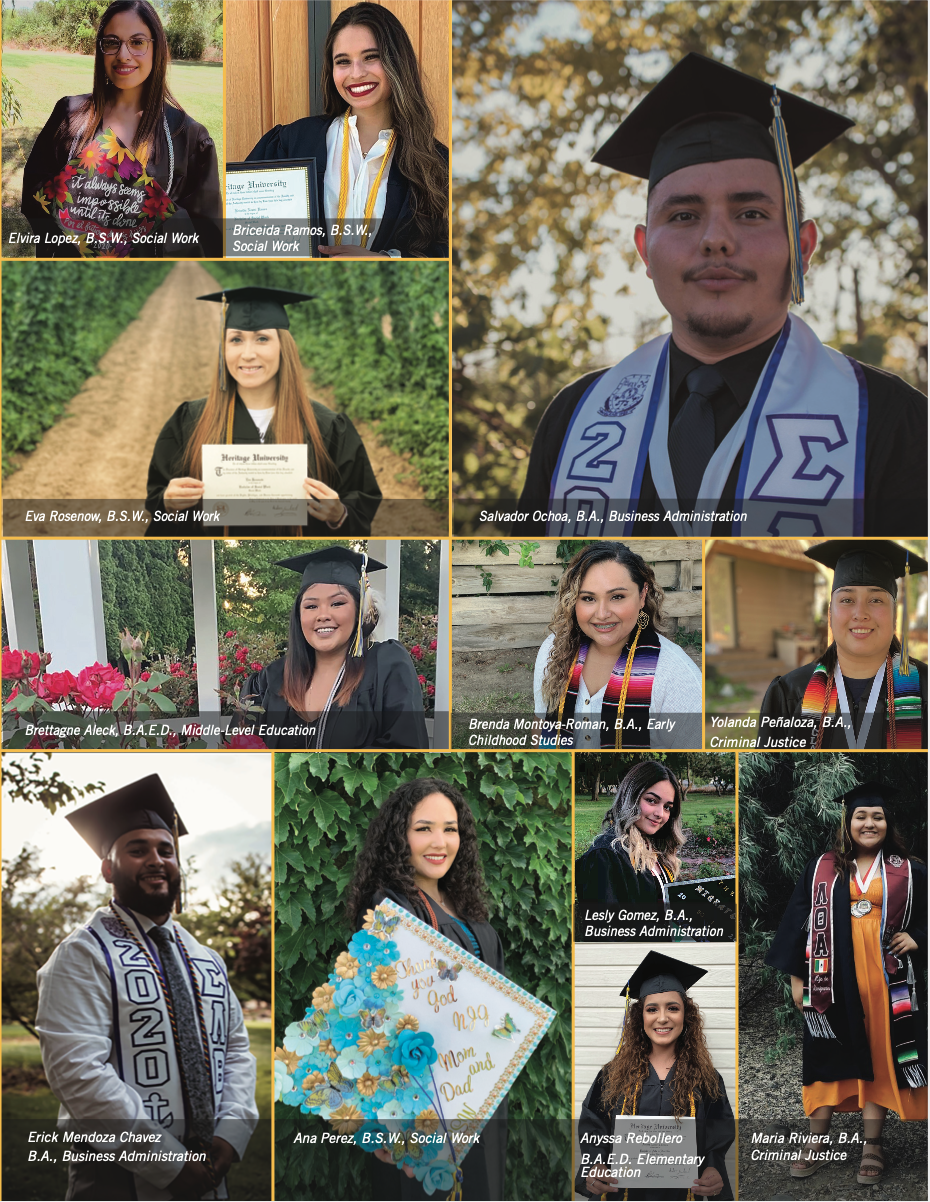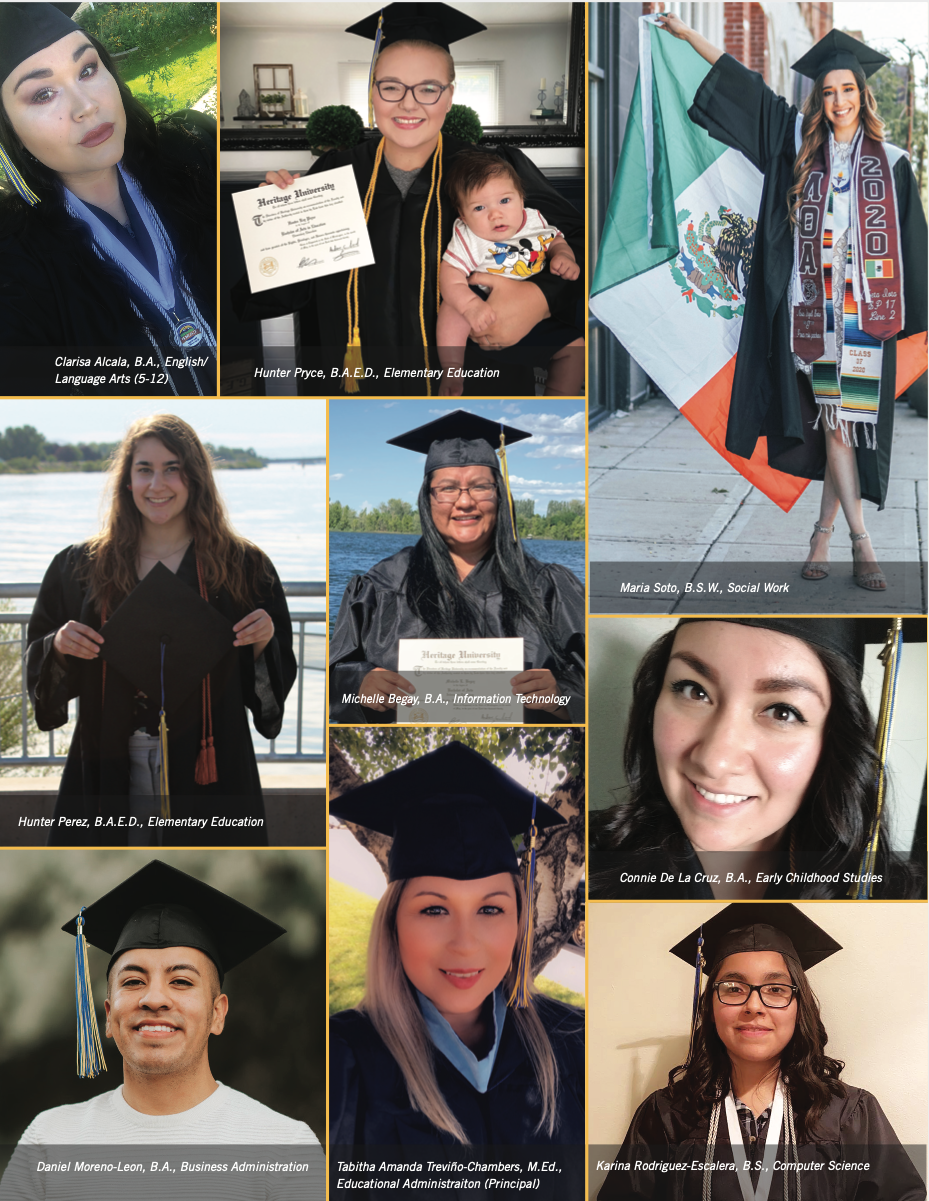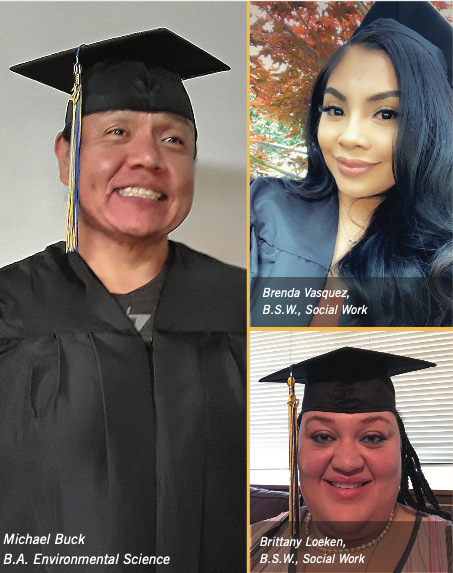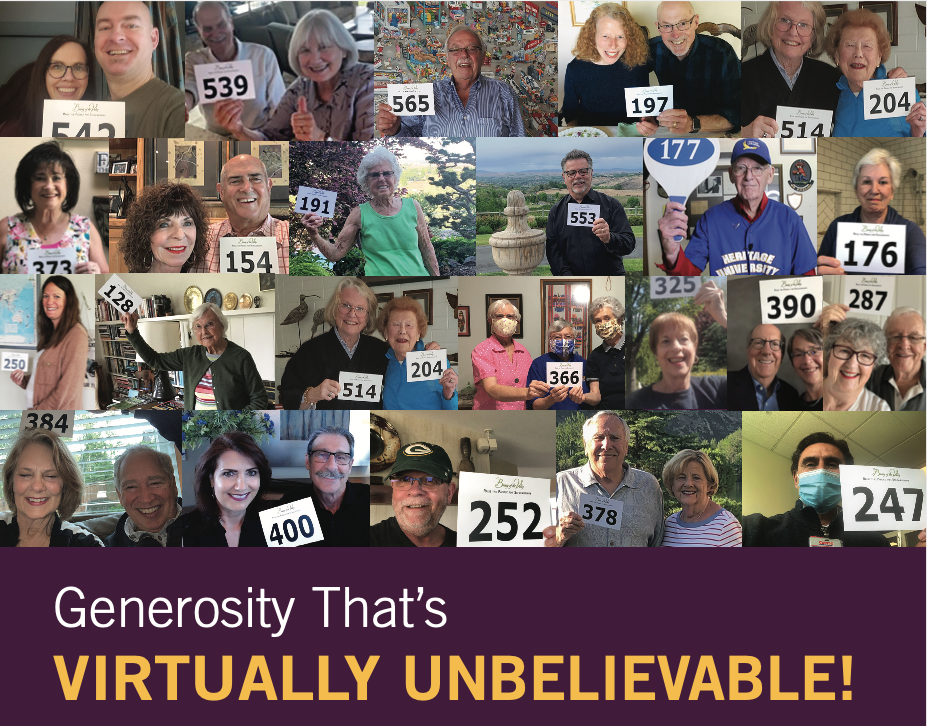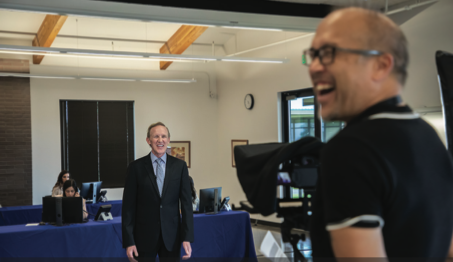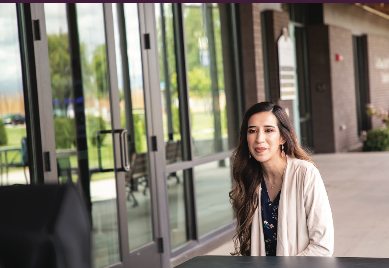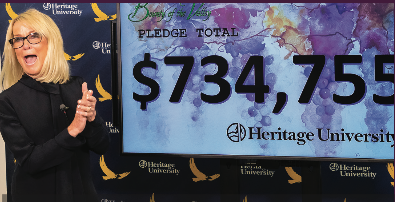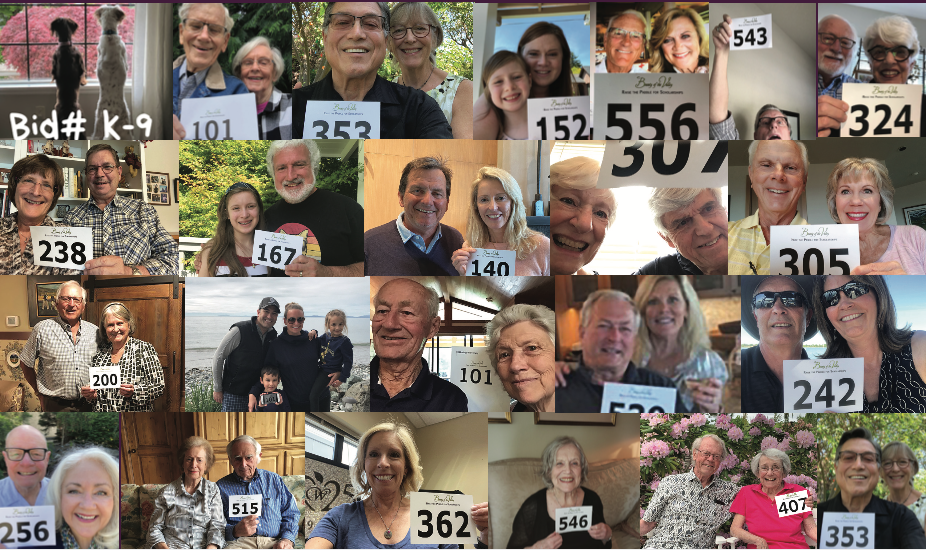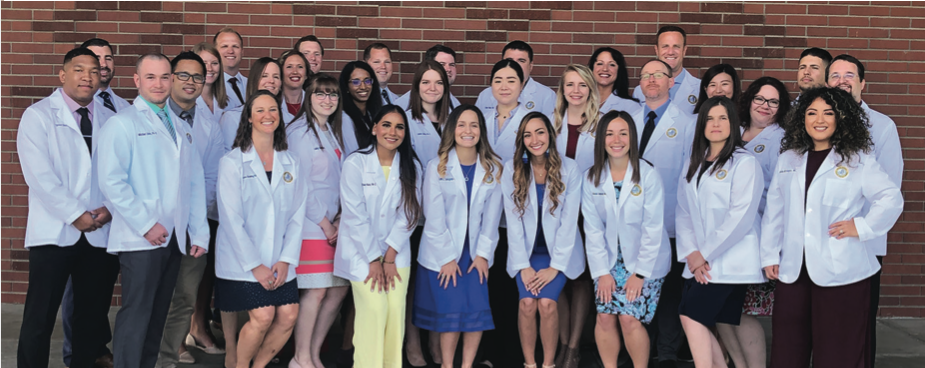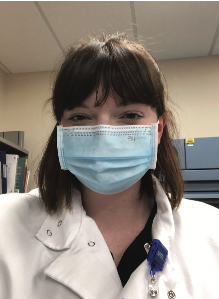La Casa Hogar executive named Heritage University’s Violet Lumley Rau Alumna of the Year
FOR IMMEDIATE RELEASE
La Casa Hogar executive named Heritage University’s Violet Lumley Rau Alumna of the Year
Toppenish, Wash. – Heritage University alumna Magaly Solis, currently the citizenship program manager at La Casa Hogar in Yakima, Wash., is this year’s recipient of the Violet Lumley Rau Alumna of the Year award. Heritage president Andrew Sund, Ph.D., presented the award to Solis during a ceremony held virtually due to Covid-19 safety protocols, with Solis receiving a trophy and certificate at the La Casa Hogar office on August 27, 2020.
La Casa Hogar is a non-profit organization that partners with Yakima Valley immigrant families which offers culturally and linguistically responsive early learning, adult education, civic engagement, and citizenship services. In her role as citizenship program manager, Solis connects people to their dreams of U.S. citizenship and all the opportunities it brings to them. “Magaly exemplifies the ideals and values of Heritage University—excellence, inclusion, perseverance, leadership and service,” said David Wise, vice president of Advancement. “She demonstrates her commitment to helping others and building communities every day in her personal and professional life. We are so proud of her and proud to call her an Eagle.”
“Heritage University offered me a pathway to achieve my educational goals. Dedicated instructors offered support and encouragement throughout my journey. The education I received at Heritage has allowed me to positively impact many lives in our community,” said Solis. “I am honored to receive the Violet Lumley Rau 2020 Alumna of the Year. This award is a celebration to many years of dedication and service to immigrant families in the Yakima Valley. I am proud to partner with students, volunteers, allies and La Casa Hogar’s resilient and powerful team to transform lives and our Yakima Valley.”
Magaly Solis graduated from Heritage in 2008 with a bachelor’s degree in Education. Ms. Solis is the first in her family to obtain a college degree. As a teenager she immigrated from the state of Guerrero, Mexico to Mabton. After earning her diploma, she worked as a substitute teacher for the Toppenish School District, and worked as a medical interpreter helping injured farmworkers, communicate with their medical providers. This work led her to La Casa Hogar, where she volunteered teaching citizenship classes. Solis says the experience was so rewarding that she joined the team as a part-time employee and later took on the program’s full-time coordinator position.
In her role, Ms. Solis earned a legal credential through the Department of Justice to successfully support immigrants to complete the long and arduous process of becoming United States citizens, which takes months or even years from start to finish. To apply for citizenship an applicant must first be a lawful permanent resident (a status that, by law, many immigrants cannot access) for a minimum of five years, and be in compliance with numerous requirements. During the interview, individuals must also pass English, U.S. history and civics tests.
“Immigration law is very complex and intimidating. Our goal is to build our students’ confidence to navigate the naturalization process and achieve their goal of becoming U.S. citizens. We teach the rights, responsibilities, and the importance of civic engagement as citizens. We work with each person, meet them where they are, and support them from the initial eligibility screening through their oath ceremonies,” said Solis.
Under Ms. Solis’s leadership, the program has grown from her one originally part-time position to an office of four full-time staff members and 50 volunteers. She used her Heritage education to write the program’s first comprehensive citizenship curriculum in 2016, complete with clear learning objectives, evaluation processes and methods to share students’ progress. Moreover, the number of people who completed the program and are now citizens rose from a few hundred to now over 1,200– single-handedly representing 10% of the entire eligible population in Yakima County.
Outside of her work commitments, Ms. Solis was just appointed in July of 2020 as a Board member of the Yakima YWCA and a member of the City of Yakima’s Community Integration Committee. She also volunteers with the Yakima Yoga Collective and devoted 200 hours this year as a participant in the Collective’s first cohort of bilingual yoga instructors. Ms. Solis is an avid outdoors-woman and has summited several of the region’s volcanic mountains, serving as a role model among Latina women exploring the outdoors and in mountaineering. In 2019, Ms. Solis received the 39 under 39 recognition from the Yakima Herald-Republic.
To set up an interview with Magaly Solis, please contact Davidson Mance, Heritage University media relations coordinator, at (509) 969-6084 or mance_d@heritage.edu.
# # #

